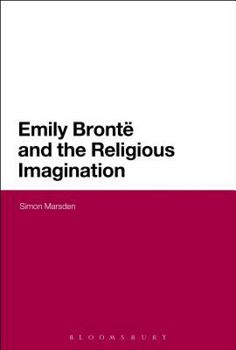Emily Bronte and the Religious Imagination
Select Format
Select Condition 
Book Overview
Readers of Emily Bront 's poetry and of Wuthering Heights have seen in their author, variously, a devout if somewhat unorthodox Christian, a heretic, or a visionary "mystic of the moors". Rather than seeking to resolve this matter, Emily Bront and the Religious Imagination suggests that such conflicting readings are the product of tensions, conflicts and ambiguities within the texts themselves. Rejecting the idea that a single, coherent...
Format:Paperback
Language:English
ISBN:1474239064
ISBN13:9781474239066
Release Date:May 2015
Publisher:Bloomsbury Academic
Length:192 Pages
Weight:0.61 lbs.
Dimensions:0.4" x 6.1" x 9.2"
Customer Reviews
0 rating





